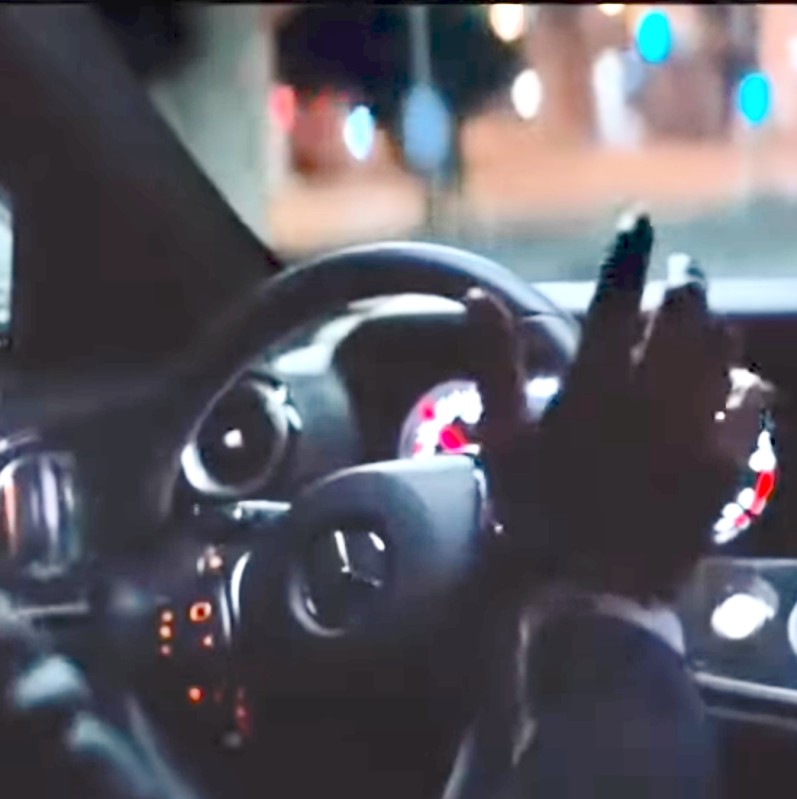Editor's note: This is the sixth match-up in our quest to find America's Most Toxic Car Ad. Scroll to the bottom to vote, and don't forget to check in on our fifth bout, the Cadillac XT5 vs. the Dodge Truancy, before voting closes at 11:59 p.m. ET on Tuesday, Sept. 28.
Driverless cars do not exist. But we sure do have a lot of commercials for them!
Today, we're looking at two toxic ads for vehicles that boast a wide array of important advanced driver assistance features that some traffic safety advocates think should come standard on all new cars...but they're definitely not advanced enough for a driver to totally fall asleep at the wheel, as these commercials suggest they confidently can.
And that misleading messaging matters. A 2018 AAA study found that 80 percent of drivers over-estimated the efficacy of blind spot detection technology, while another 40 percent would trust their car's forward collision warning system to automatically brake in an emergency...even if their car didn't have automatic emergency braking capabilities. We don't know how many people have been killed specifically because they trusted imperfect robocars too much, but we do know that pedestrians, cyclists, and a whole lot of motorists and their passengers help make up the body count.
But let's keep our eyes on the road — it's time to take a look at our contenders.
The Mercedes-Benz E-Class
Mercedes-Benz caught some heat in 2016 for this bad ad, which is ostensibly selling Americans its decidedly non-autonomous E-Class sedan ... but deliberately conflates that car with the company's fully autonomous (and fully hypothetical) F 015 "concept car," which was not for sale then, and still isn't today.
From the spot's first moments, the E-Class fantasymobile is sold to consumers as a vehicle so safe you can literally pivot the driver's seat 180 degrees away from the road and read your child a bedroom story instead of steering. In reality, the prototype of the F 015 never actually drove anywhere outside of a few creaky auto show demos ... even though the ad copy says the exact opposite.
"Is the world truly ready for a vehicle that can drive itself?" a disembodied Jon Hamm opines. "Ready or not, the future is here!" Hamm declares, before cutting to the actual E-Class, which, again, is not a self-driving car.
Then, in a truly jaw-dropping specimen of a car ad disclaimer in one-point font, the scene cuts to the driver of an actual E-class triumphantly releasing the wheel to sound of swelling violins ... while the teeny tiny text at the bottom tells viewers with magnifying glasses that the real car "will remind the driver frequently to keep hands on the steering wheel."
Oh, and it also helpfully notes (again, in a borderline illegible font) that the vehicle "cannot drive itself" — moments before Hamm gleefully proclaims that this self-driving "concept car" that is "already a reality."
Benz pulled this ad for extremely obvious reasons, but we can't find any evidence that it faced any censure from the Federal Trade Commission for false advertising.
Funnily enough, neither did this one.
The BMW iNEXT
What's worse: a car ad that (falsely) claims you can read to your baby while driving ... or a car ad that (falsely) claims you can make a baby while driving?
We can't actually show you the original version of this ad, because it was so controversial that BMW re-cut the whole spot shortly after its release. But between the mountain of thinkpieces that came out about it at the time and the still-pretty-suggestive footage that remains, it's pretty clear that the folks at Bimmer wanted their buyers to believe that the autonomous driving capabilities on the iNEXT would be so great, you could literally slip out of the driver's seat, and slip into ... well, you can probably guess.
Here's Road Show's Sean Szymkowski's racy recap of the original:
"The quick video shows a scene of a couple kissing and getting more intimate before taking things on the road. Suddenly, we're transported to a scene of the Vision iNext concept, presumably carrying the couple inside. The ad doesn't ever explicitly show the two inside the vehicle, but as a police vehicle motors by, the red and blue lights appear to light the steamy scene. Just like that, the video is over."
But even in the PG vision of the commercial, it's heavily implied that the iNEXT's technology is advanced enough that our handsy couple can snuggle in the backseat and flip through a photo album while the car is in motion.
Now: unlike the the E-Class, the iNEXT's sizzle reel was firmly an ad for a "concept" car, meaning that the company wasn't technically misleading any consumers, because the vehicle was not actually for sale. But the real iNEXT, now rebranded as the iX, is coming to market this year — and it still isn't anywhere near self-driving.
Meanwhile, Americans are already attempting to get busy in semi-autonomous vehicles, though the most famous participant in such a stunt, amateur porn star Taylor Jackson, says she "wouldn't recommend it" because she accidentally hit the steering wheel and knocked the vehicle out of Autopilot mode on the highway. (Tesla CEO Elon Musk pretty much just chuckled at this, which is why his entire Twitter feed deserves an honorable mention in this competition. We'd include one of his ads, but Tesla doesn't make them.)
Ads like this — even for "concept" cars, and even if they're quickly pulled from the air — certainly don't help dissuade other drivers from trying stuff like this in the future.
But let's keep our eyes on the road: it's time to vote! Which bad ad deserves a spot in the quarterfinals?
Polls are open until Thursday, Sept. 30 at 11:59 p.m. ET.
[poll id="193"]






